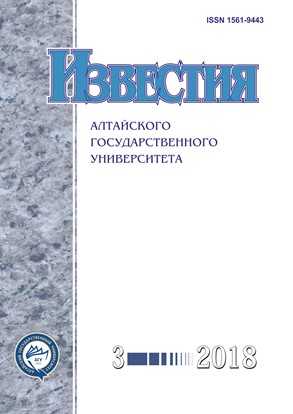General and Special in Overtime Work and Unrationed Working Day
Abstract
The article considers the topical issues of the work over the working time limits on the initiative of the employer: overtime work and non-standard working day. Nonstandard working day is a particular regime of working time, that is set for the separate categories of workers in a labour contract (article 101 of the Labor Code of the Russian Federation). Most employees work overtime, but in the cases envisaged by the article 99 of the Labor Code of the Russian Federation.
Practical use of two different types of work over the working time on the initiative of the employer often results in the substitution of the non-standard working day by overtime work.
The article identifies the reasons for this, and also other problems, for example, the ones related with the order of involving the worker in the indicated kinds of work; the features of accounting of the working hours; the methods of rewards for overtime work and work in the non-standard working day mode.
In the conclusion the author formulates suggestion on amendments in the Labor Code of the Russian Federation: on the limitation of duration of business hours in a year at the non-standard working day, and also on the increase of an annual additional paid vacation for the work in particular regime.
DOI 10.14258/izvasu(2018)3-26
Downloads
Metrics
References
Трудовой кодекс Российской Федерации: Федеральный закон от 30.12.2001 № 197-ФЗ (ред. от 05.02.2018) // Собрание законодательства РФ. — 2002. — № 1 (ч. 1). — Ст. 3.
Ванюхин В.В. Ненормированный рабочий день // Кадровик. Трудовое право кадровика. — 2011. — № 2.
Лебедев В.М. Трудовое право: проблемы Общей части. — Томск, 1997.
В организации установлена пятидневная рабочая неделя с продолжительностью рабочего дня с 9 до 18 часов. Следует ли в случае, когда работникам приходится задерживаться после окончания рабочего дня, предоставлять им дополнительные отгулы? : Письмо Роструда от 18.03.08 № 658-6-0 // Нормативные акты для бухгалтера. — 2008. — № 7.
Об утверждении Правил предоставления ежегодного дополнительного оплачиваемого отпуска работникам с ненормированным рабочим днем в федеральных государственных учреждениях : Постановление Правительства РФ от 11.12.2002 № 884 // Российская газета. — 2002. — № 237. — 18 декабря.
Определение Санкт-Петербургского городского суда от 12.11.2013 № 33-16209/2013 [Электронный ресурс]. — URL: hhttp://www.consultant.ru/.
О признании незаконным и отмене приказа № от 04 марта 2016 года, восстановлении на службе, взыскании заработной платы за время вынужденного прогула, компенсации морального вреда : апелляционное определение Судебной коллегии по гражданским делам Хабаровского краевого суда от 21.11.2016 // Сайт Хабаровского краевого суда [Электронный ресурс]. — URL: https:// kraevoy--hbr.sudrf.ru/.
Белицкая И.Я. Правовое регулирование работы за пределами установленной продолжительности рабочего времени : дис. ... канд. юрид. наук. — М., 2017.
Дзугкоева З.В. Правовое регулирование рабочего времени: автореф. дис. ... канд. юрид. наук. — М., 2010.
Киселева Е.В. Ненормированный рабочий день: от эпизодичности к систематичности // Кадровик. Трудовое право кадровика. — 2017. — № 8.
О порядке привлечения работников, которым установлен ненормированный рабочий день, к работе в их выходные и нерабочие праздничные дни : Письмо Роструда от 07.06.2008 № 1316-6-1 // Официальные документы (приложение к «Учет. Налоги. Право»). — 2008. — № 27.
О сокращении продолжительности рабочего времени : Рекомендация Международной организации труда от 26.06.1962 № 116 // Конвенции и рекомендации, принятые Международной конференцией труда. 1957-1990. — Т. II. — Женева, 1991.
Copyright (c) 2018 Е.В. Киселева

This work is licensed under a Creative Commons Attribution 4.0 International License.
Izvestiya of Altai State University is a golden publisher, as we allow self-archiving, but most importantly we are fully transparent about your rights.
Authors may present and discuss their findings ahead of publication: at biological or scientific conferences, on preprint servers, in public databases, and in blogs, wikis, tweets, and other informal communication channels.
Izvestiya of Altai State University allows authors to deposit manuscripts (currently under review or those for intended submission to Izvestiya of Altai State University) in non-commercial, pre-print servers such as ArXiv.
Authors who publish with this journal agree to the following terms:
- Authors retain copyright and grant the journal right of first publication with the work simultaneously licensed under a Creative Commons Attribution License (CC BY 4.0) that allows others to share the work with an acknowledgement of the work's authorship and initial publication in this journal.
- Authors are able to enter into separate, additional contractual arrangements for the non-exclusive distribution of the journal's published version of the work (e.g., post it to an institutional repository or publish it in a book), with an acknowledgement of its initial publication in this journal.
- Authors are permitted and encouraged to post their work online (e.g., in institutional repositories or on their website) prior to and during the submission process, as it can lead to productive exchanges, as well as earlier and greater citation of published work (See The Effect of Open Access).








